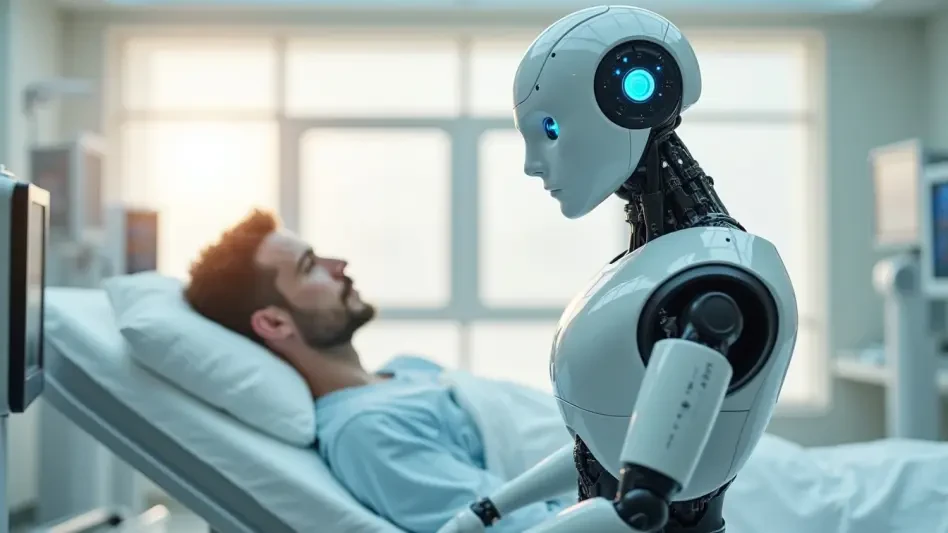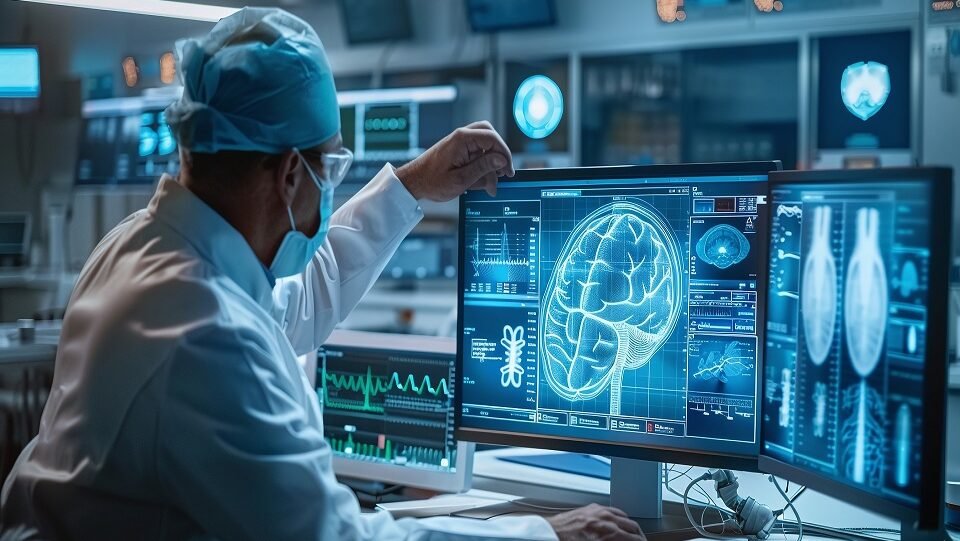In a significant move to improve the quality and speed of healthcare services, the National Health Authority (NHA) has announced plans to roll out AI-powered diagnostic tools across hospitals nationwide. This groundbreaking initiative aims to enhance patient care, streamline medical processes, and reduce the burden on healthcare professionals. As the technology advances, AI diagnostics could soon become an integral part of daily hospital operations, allowing doctors and medical staff to make quicker, more accurate decisions for patients.
The integration of AI into healthcare is not a new concept, but the NHA’s nationwide implementation marks a major step towards making these technologies accessible in every hospital, no matter the size or location. This ambitious project is expected to revolutionize the healthcare sector, improving patient outcomes and reducing the chances of misdiagnosis.
What Is AI Diagnostics?
Artificial Intelligence (AI) diagnostics refers to the use of advanced algorithms and machine learning techniques to analyze medical data. These systems can review images, lab results, and even patient history to provide insights that assist doctors in diagnosing illnesses more accurately. With AI’s ability to process large amounts of data quickly and without fatigue, it offers a level of efficiency that traditional diagnostic methods often struggle to match.

For example, AI can detect subtle patterns in medical images like X-rays, CT scans, and MRIs, which may be missed by the human eye. It can also analyze patient data to predict the likelihood of certain diseases, helping doctors make informed decisions faster.
Why Is the National Health Authority Embracing AI?
The NHA’s decision to roll out AI diagnostics is driven by several factors, all of which are aimed at improving healthcare delivery. One of the main reasons for this decision is the growing demand for healthcare services. With an increasing population and more patients requiring specialized care, hospitals are often stretched thin. AI can help alleviate some of the pressure by offering rapid diagnostic assistance, allowing medical professionals to focus more on patient care and less on administrative tasks.


Additionally, the NHA recognizes that the healthcare system must evolve to keep pace with the latest advancements in technology. AI is becoming a game-changer in various industries, and healthcare is no exception. By adopting AI diagnostics, hospitals can improve their overall efficiency, reduce waiting times, and increase the accuracy of diagnoses, which ultimately benefits patients.
Benefits of AI Diagnostics in Hospitals
- Faster Diagnoses
AI diagnostics can process large amounts of data almost instantly, enabling faster diagnoses. In emergency situations, where time is critical, this speed can be the difference between life and death. AI systems can prioritize critical cases, alerting doctors and medical staff to the most urgent issues. - Improved Accuracy
AI is trained to identify patterns in data that might be missed by the human eye. For example, it can analyze medical images with extreme precision, making it less likely that conditions like tumors or fractures are overlooked. Studies have shown that AI-powered tools can match or even surpass the diagnostic accuracy of experienced medical professionals in certain areas. - Reduced Human Error
While human doctors and nurses are incredibly skilled, they are still prone to making mistakes. Fatigue, stress, and the overwhelming number of patients can contribute to errors in judgment. AI, on the other hand, is not subject to these challenges and can assist healthcare providers by offering a second set of eyes to ensure the best possible diagnosis. - Better Patient Outcomes
With the help of AI, doctors can make more accurate diagnoses in a shorter amount of time. This early detection of health conditions can lead to earlier treatments, improving the overall outcomes for patients. For example, AI could help detect cancers at an earlier stage, increasing the chances of successful treatment. - Resource Optimization
AI tools can help optimize hospital resources by streamlining processes and reducing the time spent on routine tasks. Medical professionals can spend more time with patients, while AI systems handle data analysis and diagnostic work in the background. This results in more efficient use of both human and technological resources.
How Will AI Diagnostics Be Implemented Nationwide?
The NHA’s rollout of AI diagnostics will be carried out in phases, starting with large hospitals and gradually expanding to smaller healthcare facilities. The implementation will involve equipping hospitals with the necessary AI-powered diagnostic tools, training medical staff to use them effectively, and ensuring that the technology is integrated into existing hospital systems.
In addition to improving diagnostic capabilities, the NHA will focus on creating a robust support system for the AI technology. This includes setting up dedicated teams of specialists to monitor the performance of AI tools, troubleshoot issues, and ensure that the systems continue to meet high standards of quality and accuracy.

To make the transition smooth, the NHA will work closely with healthcare providers, ensuring that doctors and nurses are fully trained and comfortable with the new technology. This collaborative approach will help maximize the benefits of AI while addressing any concerns that healthcare professionals may have.
Challenges and Concerns
While the rollout of AI diagnostics offers numerous benefits, there are also challenges to consider. One of the biggest concerns is the potential for job displacement. Some fear that AI could replace certain roles within healthcare, especially those related to data analysis and diagnostics. However, experts argue that AI will complement, not replace, human workers. The goal is not to replace doctors or nurses but to provide them with better tools to do their jobs more effectively.
Another challenge is ensuring that AI systems are properly tested and refined before being deployed in hospitals. The NHA must ensure that the AI tools meet the highest standards of safety and accuracy to prevent any risk of misdiagnosis or technical failures. This will require rigorous testing and continuous monitoring of AI systems to ensure their reliability in real-world medical settings.
Lastly, there are ethical considerations around data privacy and security. AI diagnostics rely on vast amounts of patient data to function effectively, which raises concerns about how this sensitive information will be stored and protected. The NHA has assured the public that strict data protection measures will be in place to safeguard patient confidentiality.
The Future of AI in Healthcare
The NHA’s decision to implement AI diagnostics is just the beginning of what promises to be a transformative shift in the healthcare industry. As AI technology continues to evolve, its role in healthcare will only grow. In the future, AI could be used not just for diagnostics, but also for treatment planning, drug development, and even robotic surgery.
With the successful implementation of AI diagnostics, hospitals across the nation will be better equipped to provide high-quality care to patients. By embracing innovation and technology, the healthcare system is on the brink of a new era—one where patients receive faster, more accurate care, and doctors have the tools they need to make life-saving decisions with confidence.
Also read: Sharjah Opens Mega Cultural Hub to Promote Arts and Heritage














